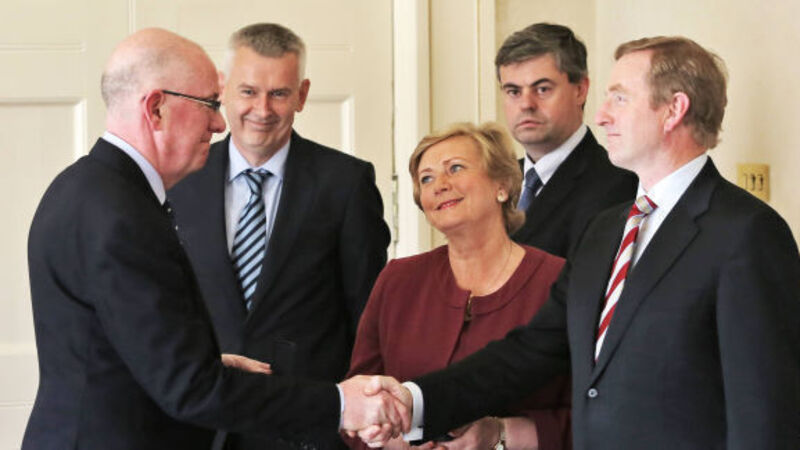Number of issues remain unsolved for Government in wake of Shatter resignation

What did it for Alan Shatter was the political reality, that he had become the dead weight pulling the Government down and would have to be cut loose before dragging it into another period of damaging headlines.
A much-anticipated report will be published today by barrister Sean Guerin which examines how Mr Shatter — as justice minister — and his department handled claims of malpractice in the gardaí which they received from a whistleblower, Sergeant Maurice McCabe, at least two years ago.













